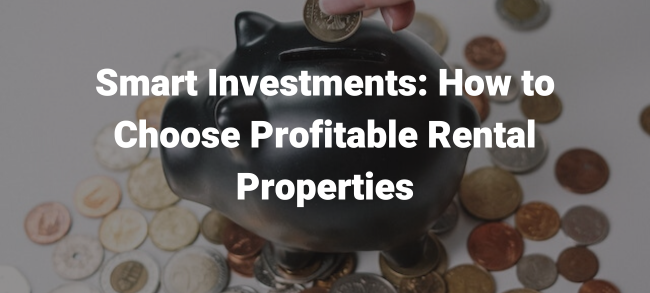
What You Need to Know About Breaking a Lease in Florida
In most cases, tenants that have signed a lease agreement have the intention of staying for the full duration indicated on the lease. However, some circumstances can’t be avoided. For example, something that comes up during the lease period that causes the tenant to leave before the lease in Florida is up.
This can be a complicated scenario for both renter and the landlord. In this article, we are a going to cover the relevant Florida landlord-tenant law plus important information for when it comes to early lease breaking in Florida.
What Is a Lease?
A rental agreement or lease is an agreement between the landlord and the tenant, and it usually lasts for a year. In most cases, when the rental is under a lease in Florida, the landlord is not able to increase rent or change the terms until the end of the lease period. In exchange, the tenant agrees to use the property for a specific amount of time.
If the tenant decides to leave before the lease term ends, the tenant may be forced by law to continue to pay the rent. Florida tenants must cover the rent until the it ends, even if they are not living in the property anymore.
Signing the Florida lease agreement also implies that the landlord can not forcefully evict the tenant unless the tenant violates a significant term or is unable to pay the rent.
If the tenant wants to leave before the lease term ends, then this is what you call “breaking the lease.” What most people don’t know is that there are instances in which terminating the lease is justifiable.
In such cases, the tenant may leave, and he or she is not obligated to pay rent until the Florida lease ends. So, what are a few examples of these instances? That’s what we are going to cover below.
Justified Reasons to Legally “Break a Lease” in Florida
1. Active Military Service
For a renter to invoke this law, he or she must be part of “
uniformed services “ and starting active military duty. This includes commissions corps of the PHS, commissioned corps of the NOAA, activated National Guard or the armed forces.
The tenant must also send the landlord written notice for an early
lease termination. Once the written notice is delivered or mailed, the renter is free from the lease 30 days after the next rent is due. They are responsible for paying until this time as well. Once the 30 days are up the tenant can officially break a lease.
2. Rental Unit Violations
In Florida, there’s a local and state housing code that all Florida landlords must adhere to. If the rental fails to pass safety codes or health codes, the court will most likely conclude that the renter has been “ constructively evicted “. In this matter, the breaking of a lease early is justified.
This means that because the landlord is renting out an “unliveable housing unit,” the landlord “evicted” the tenant. Thus, the tenant is free from the lease/ rental agreement. Keep in mind that the problem of the rental unit must be truly serious (e.g., lack of heating) before the court can conclude “constructively evicted.”
3. Florida Renters Rights on Privacy and Harassment
When it comes to renters rights in Florida, if the landlord repeatedly violates the renter’s right to privacy, then the court can conclude that the renter has been “constructively evicted.” Harassments such as changing the locks, turning off the lights and water or removing doors or windows can also allow a tenant to break a lease early.
So, if the renter leaves, and it’s deemed as an unjustified breaking of a lease, what are the options for both tenant and landlord? That’s what we are going to cover in the next sections.
Landlord’s Options in Unjustified Reasons to Break a Lease
Florida’s rental laws are a lot more relaxed when it comes to forcing the landlord to make reasonable efforts to “mitigate damages” or re-rent the property because of a tenant's unjustified reason to break a lease.
Essentially, when breaking a Florida lease agreement early for unjustified reasons, the landlord has three options.
First, the landlord has the option of re-renting the unit. Second, the landlord has the right to liquidate the tenant’s assets to cover the financial damages. And lastly, the landlord can choose to do nothing, and this means that the renter must pay the rent until the end of the lease.
Tenants Rights in Unjustified Breakings a Florida Lease Early
In instances that result to an unjustified breaking of leases, the renter is the party with the limited options under Florida laws. Keep in mind that a lease is an agreement that benefits both the Florida tenant and landlord.
For the renter, he or she is assured that rent will stay the same until the rental lease ends. For the landlord, he or she is possibly sacrificing any appreciation in fair market rent value, in exchange for a guarantee that the property stays rented for a longer period.
For tenants, it’s essentially renting in wholesale. For landlords, it’s the norm to give discounts if the other party is renting in wholesale.
At best, the only thing the tenant can do (aside from paying rent until the tenancy or lease ends) is help the landlord find another renter. This is because if the landlord accepts another renter, the old lease automatically ends which then frees the old renter.
Last Words
What we have covered above is just the tip of the iceberg when it comes to the subject of breaking a lease in Florida. If you are a landlord or a tenant in Florida, and you want more detailed and comprehensive information about breaking a lease, then it’s best to talk to a professional to help you with the situation.

Advantage Realty Services Inc











